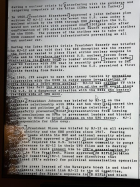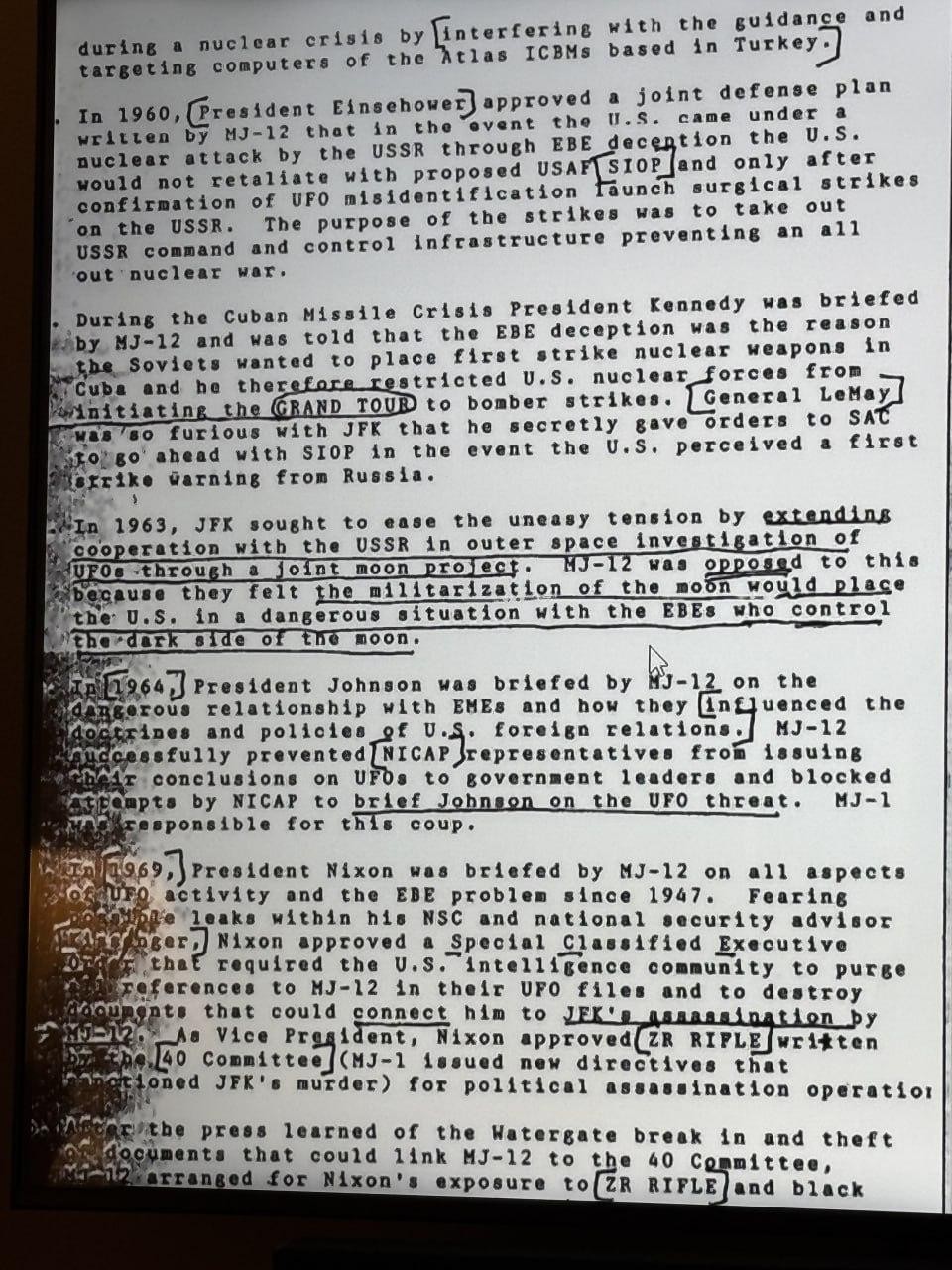
Lately on my TV I have begun seeing advertising spots supporting the Big Beautiful Bill and it advises viewers to "contact your representatives" about it. To my knowledge, this is the first time that the president has bought paid TV advertising to support a bill.
Personally, I think it's brilliant, but it also seems like this is the first time I've ever seen such advertising for a presidential bill. What do you all say?
If one studies the Middle East map, there is a 350-mile stretch between Abu Dhabi in the United Arab Emirates southeast across Oman near Masirah Island in the Mediterranean Sea. If those two countries built a canal along that route, they would (1) have an income earning canal that could enrich them further than they already are, and (2) bypass the Strait of Hormuz by about 150 miles, and (3) remove Iran from interfering with international commerce.
Such a large earthwork construction using modern equipment would, of course, take capital investments, a lot of labor, and security, but it could be done. But Oman and the Emirates have that kind of capital, and it would be a chance to show the world their technical capabilities.
The Suez Canal, built in 1869, is 120 miles long, and that was using primitive equipment and manual labor. Think of what could be accomplished today.
Why hasn't this been done years ago?
What "Iran will do now" is probably, in the next few days, capitulate entirely, the Ayatollah will be removed, citizens will rise up against the regime with the army and national police siding with them, and the Shah's heir will fly in from London where he has been in exile for many years, and take over the nation again. He will bring trade, modernity, and civilization back to the country and Iran will turn away from any further state-sponsored terrorism. That's what I believe will happen.
This is quite possibly a foreshadowing of what comes next in Iran: https://newswithviews.com/irans-blood-soaked-mullahs-are-unworthy-of-the-iranian-name/
So I have a relative, a young lady who is currently serving as an Intelligence Analyst in the US Air Force. She seems to be pretty good at her job and has texted several times on current affairs AS SHE SEES THEM from a personal point of view, but NEVER discussing any classified information. She is very clear on that.
However, she did share with a couple of us in the family one of her go-to sites for open source information and intelligent discussion of military conflicts throughout the globe.
Here is the website for all you anons to peruse: https://www.understandingwar.org/
Neither she nor I make any claims about the accuracy of the website, but personally, it looks legit to me... and insightful and intelligent as well.
This seems like a good time to post this, since things are getting...shall we say, "spicy" out there? It is from the blog "Bayou Renaissance Man" and gets down to some good advice that mirrors my own personal thinking stated as my "Rule #1 of Survival... Avoid Crowds." With the recent "No Kings" demonstrations, Free Palestine demonstrations, and left-wing lunatics resorting to violence and trying to create chaos wherever they are, we all need to be mindful of these things.
Stay safe out there, anons, and don't fall into their trap unless it all goes sideways and violence comes to a neighborhood near you. If that happens, you may not have a choice in the matter, and it would be a good time to band with your neighbors for defense, because going Rambo on left-tards will only get you killed.
https://bayourenaissanceman.blogspot.com/2025/06/what-do-i-do-when-someone-is-shooting.html
** "What Do I Do When Someone is Shooting At Me?"**
That's the title of a lengthy article by Marc MacYoung, a well-known self-defense and street-smarts instructor. He offers ways to analyze a situation and assess the real risks it entails, rather than merely react in a knee-jerk fashion to events you don't understand. Here's an excerpt.
I came up with a list of the six most common results when someone IS trying to kill you. They are:
1) You die
2) You spend a long time in the hospital
3) Someone runs away (usually you)
4) You shoot back (often prompting the other person to retreat)
5) You retaliate with such ferocity the other person is injured, killed or runs away
6) Someone else intervenes resulting in some combination of 1-5.
If those weren't the results, then the person WASN'T trying to kill you -- no matter WHAT you want to believe or tell others.
In a similar vein, just because someone is waving a gun, that isn't the same as them shooting. And– in a bit you'll see why this is important– just because you're in an area where someone is shooting doesn't necessarily mean they're shooting at you specifically.
If there's a gun spitting lead, it's safe to assume the person is trying to kill. The question is "Who?" If not you then someone else. People intending to kill you usually don't stop until
a) they've succeeded,
b) they believe they have succeeded or
c) the danger to them becomes too great to continue.
The importance of that is simple: People who are trying to kill someone else don't really care about you unless you get in their way. Someone who is trying to kill you specifically will be more dedicated to that task than someone intent on killing someone else or anybody in the area. This strongly effects what your options are.
That is why you must look at what happens before it becomes physical -- even with weapons. Because what is going on before the weapon is drawn and what occurs while the weapon is displayed is critical for assessing what is the best course of action for you.
There's much more at the link. Highly recommended reading.
Mr. MacYoung is well qualified to talk about the overall environment of crime and violence "on the street", as opposed to in textbooks. He goes well beyond the "how to use a gun to defend yourself" perspective, and discusses whether or not you should use a gun at all, and how using one may get you into more trouble than refraining. He also points out that if you don't understand the situation, you're much more likely to make a mistake that lands you in trouble with the law rather than your adversaries. Best of all, of course, is not to be in an area where you're exposed to trouble of that sort.
As another well-known instructor, John Farnam, has said (and we've repeatedly quoted in these pages):
The best way to handle any potentially injurious encounter is: Don’t be there. Arrange to be somewhere else. Don’t go to stupid places. Don’t associate with stupid people. Don’t do stupid things. This is the advice I give to all students of defensive firearms. Winning a gunfight, or any other potentially injurious encounter, is financially and emotionally burdensome. The aftermath will become your full-time job for weeks or months afterward, and you will quickly grow weary of writing checks to lawyer(s). It is, of course, better than being dead or suffering a permanently disfiguring or disabling injury, but the “penalty” for successfully fighting for your life is still formidable.
Crowds of any kind, particularly those with an agenda, such as political rallies, demonstrations, picket lines, etc are good examples of “stupid places.” Any crowd with a high collective energy level harbors potential catastrophe. To a lesser degree, bank buildings, hospital emergency rooms, airports, government buildings, and bars (particularly crowded ones) fall into the same category. All should be avoided. When they can’t be avoided, we should make it a practice to spend only the minimum time necessary there and then quickly get out.
“A superior gunman is best defined as one who uses his superior judgment in order to keep himself out of situations that would require the use of his superior skills.”
Wise words, particularly in our cities where demonstrations and riots are becoming a daily event. An unarmed, apparently non-violent protester has already been shot dead through being in the wrong place at the wrong time. Let's not follow his tragic example.
Right now, I think that we (the West mostly, but the entire world too) is at the end of this current "Fourth Turning," and as they often do, it's going to end in fire, violence, disruptions, and an expanded consciousness. The "Fourth Turning" theory tells us that every 80 to 100 years, we go through this, and that a "Grey Champion" rises to the challenge and leads us through and out of it, and into a new "First Turning"...a period of relative peace and prosperity.
https://en.wikipedia.org/wiki/Strauss%E2%80%93Howe_generational_theory
I think we are in that precise moment of the closing of this Fourth Turning, and it's going to be a bumpy ride.
But our "Grey Champion" (IMHO) is Pres. Trump, and all of what we're seeing -- riots, street demonstrations, manufacturing returning to the US, and general upheaval of the status quo -- is unfolding just as the authors of the theory and book "The Fourth Turning" (Strauss and Howe) predicted in 1997.
A friend emailed me this morning, saying that he had seen a story last week about several Russian planes being flown into the Ural Mountains and did not return. He further said that it was thought that many Russian officials had been flown to a location there as a "continuity of government" mission; however he did not provide a source.
Add to that this thread here: https://greatawakening.win/p/19BGY9Zp2t/russias-uvb76-buzzer-station-tra/c/
...and it appears that something ominous is going on.
Can anyone confirm or deny the story about the planes to the Ural Mountains?

Storms across our region knocked down trees and I've been without internet service until just now, guys, at 1:51PM. So what did I miss? Have the aliens landed? Has the Epstein list been published? Are we at war? ...and with whom?

I somehow managed to get "subscribed" to $DJT breaking news alerts. I follow Pres. Trump on TS, but I never signed up for this subscription, and I'm getting like 40 to 70 a DAY! I can't figure out how to unsubscribe from $DJT... does anyone here know how to do that?
EDIT: I still want to see Trump's TS posts, I just want to get rid of the countless subscription alerts.
Points to ponder:
The 1968 Federal Firearms Act was predicated on, and inspired by, the assassinations of JFK, MLK, and RFK, with the idea that unregulated access to firearms by the citizens was a bad thing.... cuz JFK etc.
If what we are learning now about CIA and LBJ involvement in those assassinations, does this not undermine the 1968 Act and call for its repeal? Further, if the Act is repealed, is there any need for the ATF? Further, is the very existence of the ATF an unconstitutional restraint on the Second Amendmen?
I found this on "Breitbart News"... it speaks of a long-known (but lately ignored) economic theory on how tariffs can enrich the US, but at a particular rate:
For decades, American elites have spoken of free trade as though it were a moral commandment engraved in stone—unquestionable, sacred, eternal. Tariffs, they say, are relics of the past. Economic heresy. An automatic road to higher prices, shrinking output, and worldwide retaliation.
What they don’t tell you—what most of them don’t know—is that some of the most brilliant economists in history developed a theory proving exactly the opposite: under the right conditions, tariffs can make a country richer.
This idea goes by the name optimum tariff theory, and it has been around since long before modern economists started pretending free trade was a universal good. Long before Donald Trump ever uttered the word “tariff,” British and classical economists were working out exactly how, when, and why a powerful country could tilt global trade in its favor.
And if that sounds familiar, it should. Because Trump’s trade policy—especially his 10 percent baseline tariff on all imports—is a near-perfect real-world application of this theory.
The core insight is this: when a country is big enough, it can influence world prices. The United States is not a small, open economy. We are the world’s largest buyer. When we buy less of something, the world notices. Prices move.
Now imagine we put a tariff on imports. That’s just a tax at the border. It raises the domestic price of a foreign good. As a result, we buy less of it. But if we’re a major share of global demand for that product—steel, semiconductors, autos, solar panels, whatever—the global price starts to fall. The country selling it can’t easily find other buyers. Supply outstrips demand. So, prices drop.
In this case, the tariff doesn’t just make the product more expensive at home. It pushes down its world price, so we end up paying less for it than we would without the tariff. We give up some volume of trade, yes—but what we do trade, we trade on better terms. This is what economists call a terms-of-trade gain.
Trump's instinct told him what they proved in theory: America has leverage. We are the buyer everyone wants. And when we put a modest price on access to our market, we get better deals in return. That’s the logic behind the 10 percent baseline tariff. That’s the logic behind reciprocal tariffs.
The textbooks forgot. But Trump remembered.
My summary: Simply put, the USA is the largest buyer of goods in the world and we want and deserve a better deal.

I don't trust Big Pharma anymore, never got the COVID jabs or boosters, and try to keep my immune system boosted with a daily regimen of vitamins and supplements -- Quercetin, Black Cumin Seed, Turmeric, etc. I exercise regularly with heavy weights and aerobic rowing and am in excellent overall health.
But I am of an age where pneumonia is considered a "killer" among my cohort, and just last night another friend had to go to the ER with pneumonia-like symptoms.
So I'm wondering if anyone here has any expertise or insider knowledge about current pneumonia vaccines. Do they contain mRNA components? Spike proteins? ...or are they considered "safe" by our GAW community?
Any info will be appreciated, thanks.













